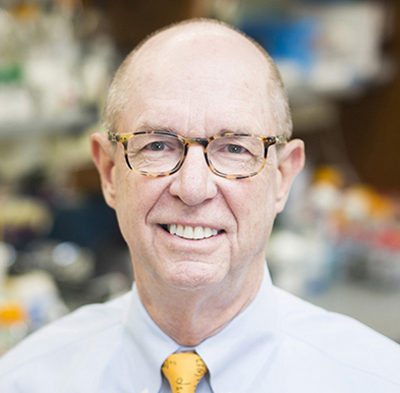Stephen Doster
-

Zost honored for research on COVID-19, other life-threatening viral diseases
Seth Zost, PhD, a research fellow in the laboratory of James E. Crowe Jr., MD, director of the Vanderbilt Vaccine Center, has been awarded a major international prize for his research on COVID-19 and other life-threatening viral diseases. The Claude Hannoun Prize for Best Body of Work is… Read MoreOct. 29, 2021
-

Protein Society President’s Column Honors Oswald Avery
An editorial, written by president of The Protein Society Chuck Sanders, appears in the October 2021 issue of the Society’s newsletter. It came to my attention that Oswald Avery is buried here in Nashville at the atmospheric Mt. Olivet Cemetery—I had been told that my Dean,… Read MoreOct. 27, 2021
-

Professor discovers signaling pathway that lets ketamine act as a rapid antidepressant
THE IDEA Ketamine has been gaining interest over the past several years as a fast-acting antidepressant. Past research shows that ketamine has antidepressant effects, especially for those who have treatment-resistant depression. Lisa Monteggia, professor of pharmacology and director of the Vanderbilt Brain Institute, furthered her prolific research… Read MoreOct. 27, 2021
-

Sanders lab compiles list of genes and proteins that cause the 70 most common genetic diseases
Research led by Chuck Sanders, associate dean for research in the School of Medicine Basic Sciences and professor of biochemistry & medicine, and first-author Tucker Apgar, an undergraduate student in the Sanders Lab, compiled the first comprehensive list of genes and proteins that cause the 70 most common genetic diseases. Read MoreOct. 15, 2021
-

New marker for metaplasia
Cellular changes in the stomach lining, called metaplasia, increase the risk for gastric cancer, the third leading cause of cancer deaths worldwide. Two types of metaplasia are observed in the human stomach: pyloric metaplasia, initiated from spasmolytic polypeptide-expressing metaplasia (SPEM) cells, and intestinal metaplasia, which can represent a more advanced… Read MoreOct. 14, 2021
-

Renã Robinson named President of National Organization for the Professional Advancement of Black Chemists and Chemical Engineers
Renã A.S. Robinson, associate professor of chemistry and Dorothy J. Wingfield Phillips Chancellor Faculty Fellow, has been named president of the National Organization for the Professional Advancement of Black Chemists and Chemical Engineers. Read MoreOct. 12, 2021
-

Eunyoung Choi & research assistant Brianna Caldwell identify the origin of metaplasia in the stomach
Eunyoung Choi, assistant professor of cell and developmental biology, and first author Brianna Caldwell, a research assistant in the Choi lab, have identified the origin of metaplasia in the stomach. Metaplasia is a key initiating step in the development of gastric cancer, and which cell type gives rise to it… Read MoreOct. 12, 2021
-

Marnett stepping down as dean of Vanderbilt School of Medicine Basic Sciences
Lawrence J. Marnett, who has served as dean of Vanderbilt University’s School of Medicine Basic Sciences since its creation in 2016 and has led its dramatic ascension as one of the nation’s top biomedical research and doctoral programs, will step down as dean effective June 30,… Read MoreOct. 11, 2021
-

Sugar compounds in breast milk relieve uncomfortable side effects caused by chemotherapy
Two Vanderbilt researchers have isolated sugar compounds in breast milk that can relieve hidden yet life-altering negative side effects of cancer treatment. Traditional chemotherapy destroys cancer by killing rapidly growing cancer cells has several visible, relatively minor side effects—rashes, hair loss and bruising. More severe patient reactions to chemotherapy include… Read MoreOct. 8, 2021
-

Upending paradigms
A recent paper from the Žanić lab, led by graduate student Veronica Farmer and postdoctoral fellow Göker Arpağ, upends a paradigm that has been widespread in the field of microtubule dynamics. In their paper, which was published in the October print issue of the Journal of Cell… Read MoreOct. 6, 2021